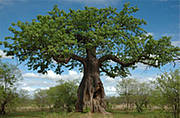The Government of the Republic of Korea, Jeju Province and IUCN are working together to make the Congress a sustainable event.
Our aim is to minimize and compensate for the direct and indirect environmental impacts relating to all aspects of the Congress and leave a positive legacy. We endeavour to minimize the consumption of natural resources and the production of waste related to all phases in the lead up to, during and after the Congress.
We will foster actions that avoid harm to biodiversity and human health, minimize our impact from CO2 emissions, and contribute to the sustainable development of the local economy.



